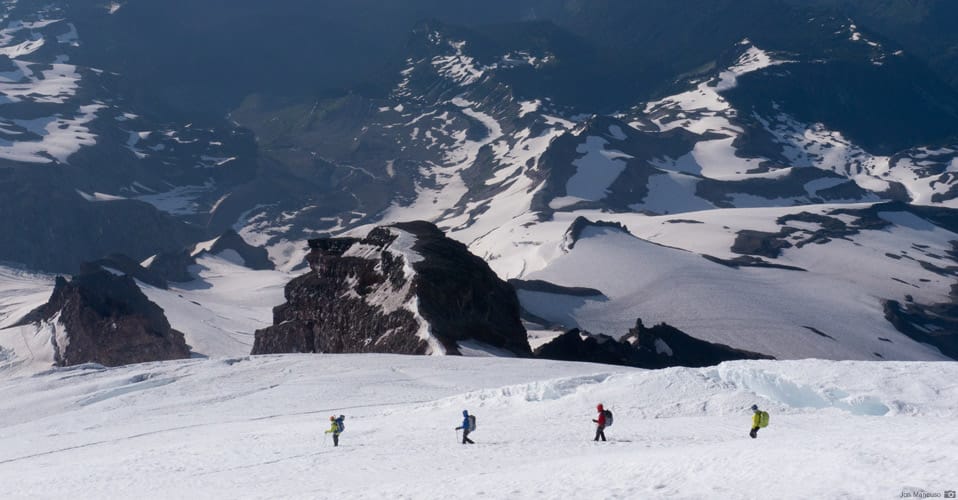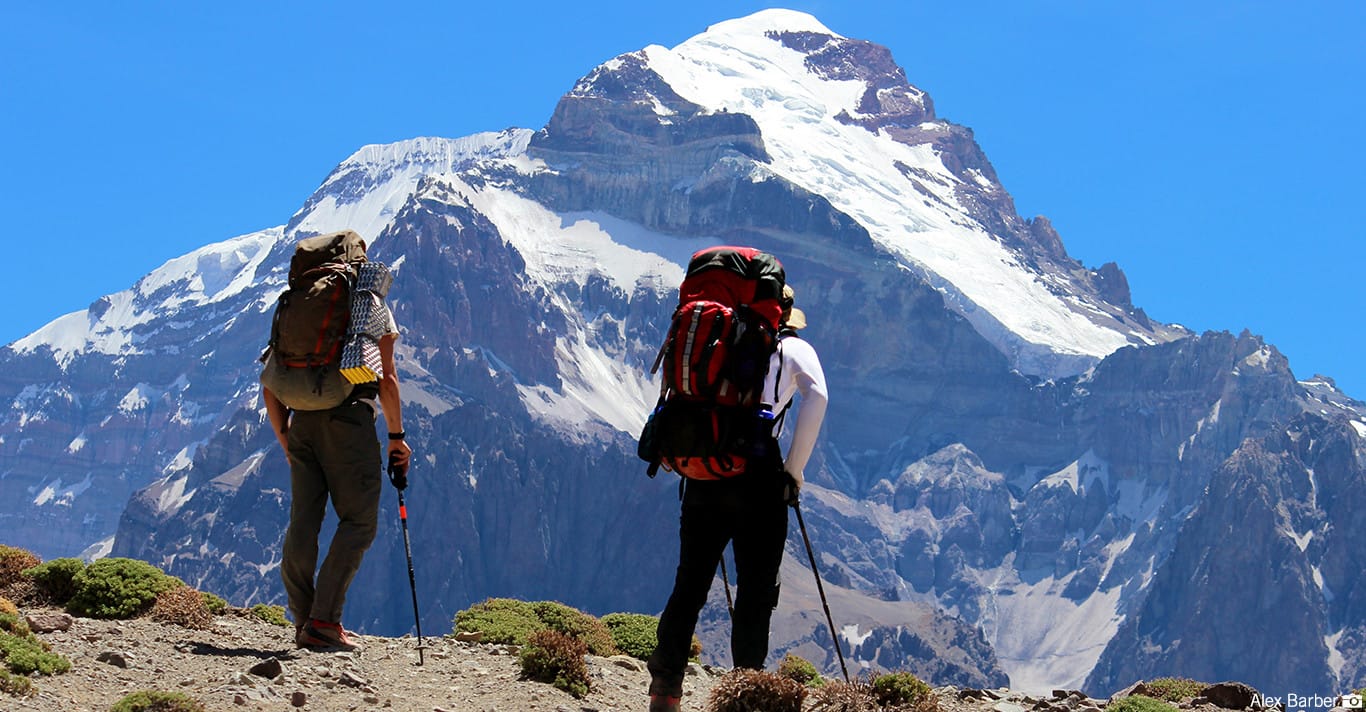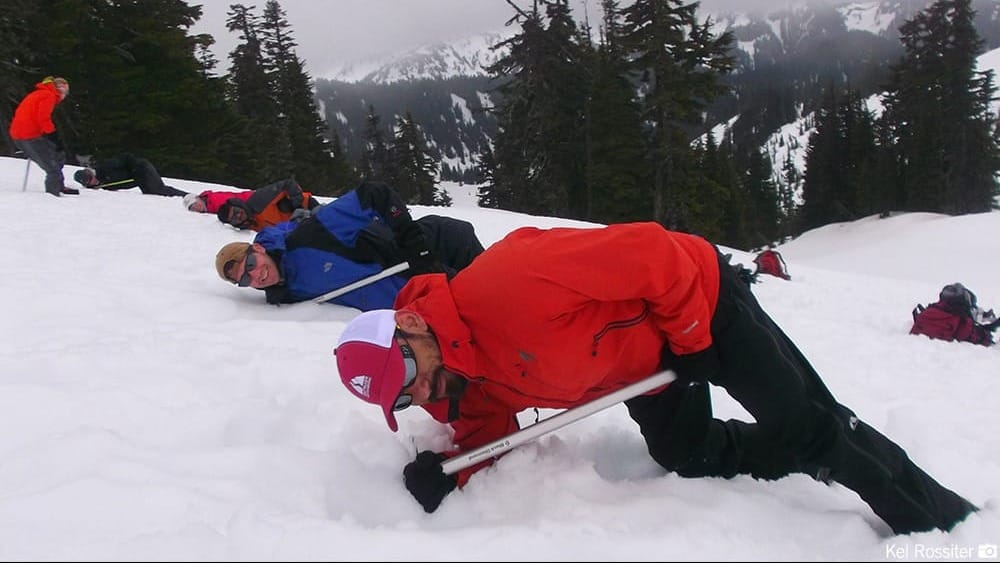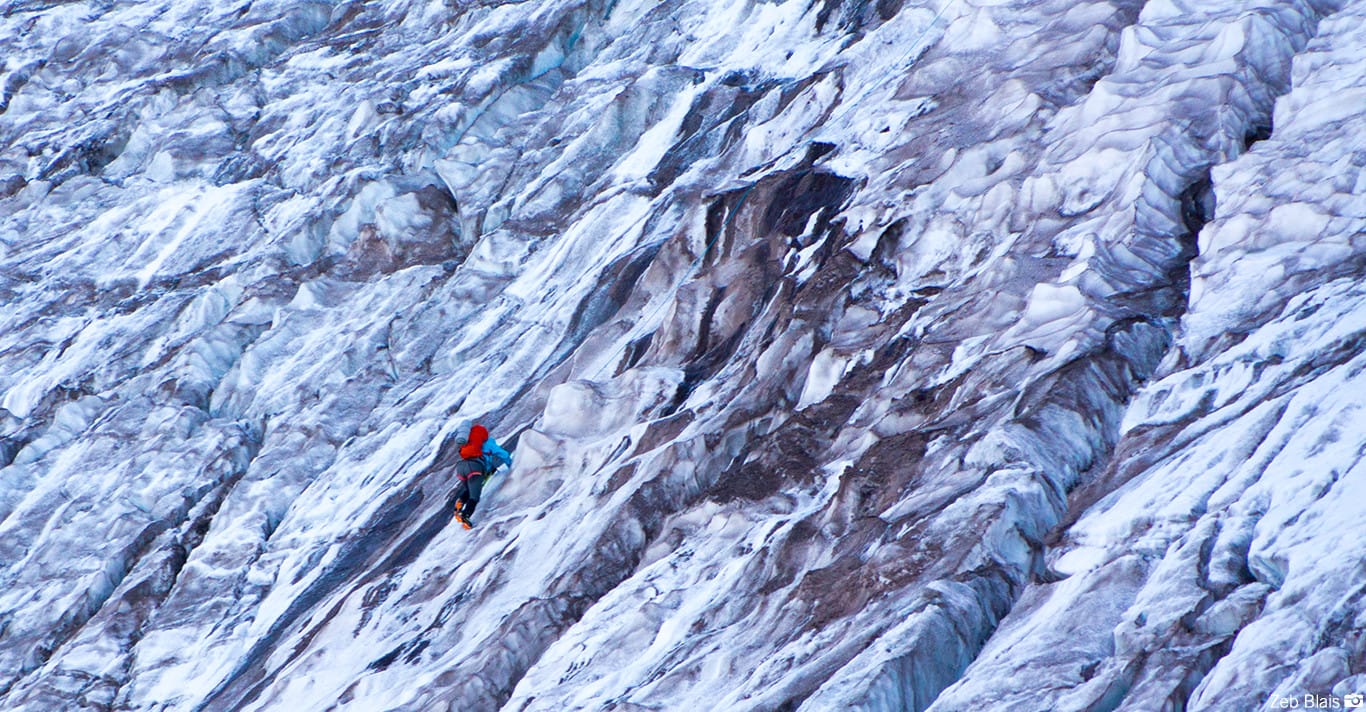Each of these programs serves a different purpose, whether it's reaching the top of a mountain, learning technical climbing skills, or preparing for longer, more demanding objectives.
This guide will break down the key differences so you can choose the right experience for your climbing goals.
Summit Climbs: The Fastest Route to the Top
A Summit Climb is designed with one primary goal: reaching the summit. While you’ll gain basic mountaineering skills along the way, the focus is on completing the climb and standing on the summit.
These climbs typically begin with a pre-trip orientation, where climbers meet their guides, go through a gear check, and discuss the route plan. The next day includes a Mountaineering Day School, where participants practice essential glacier travel skills like cramponing, ice axe use, rope travel, and self-arrest techniques. From there, the focus shifts entirely to the climb.
A Summit Climb is ideal for climbers looking for a structured, guided ascent of a major peak without the commitment of extensive skills training. It’s a great way to experience mountaineering with expert guides while taking on a classic summit.

Examples of Summit Climbs at RMI:
- Mount Rainier (Four-Day Climb) – The most popular guided climb in the U.S., offering a classic glaciated ascent.
- Mount Baker Easton Glacier (Three-Day Climb) – A shorter but rewarding glacier climb, great for first-time climbers.
- Mount Shuksan Fisher Chimneys (Three-Day Climb) – A mix of glacier and rock climbing with an airy summit.
Who Should Choose a Summit Climb? A Summit Climb is best for those who want to reach the top of a mountain in a structured, guided environment. It’s perfect for first-time climbers looking for a challenge or those who want a guided experience without extensive technical training.
Expeditions: The Ultimate Mountaineering Challenge
Expeditions are similar to Summit Climbs, but they take place in remote, high-altitude environments and require extended time on the mountain. These are multi-week experiences where climbers progressively establish camps, acclimate to extreme altitudes, and work within the unpredictable nature of expedition climbing.
Unlike Summit Climbs, which follow a relatively fixed schedule, Expeditions require flexibility and patience. Routes and itineraries often change due to weather, altitude adaptation, and route conditions.
Climbers on an Expedition must be physically and mentally prepared for long days carrying heavy packs, unpredictable conditions, and time spent in extreme environments.

Examples of Expeditions at RMI:
- McKinley (Three-Week Expedition) – The highest peak in North America, known for extreme weather and technical climbing.
- Aconcagua (Three-Week Expedition) – A high-altitude climb in the Andes, requiring long trekking days and acclimatization.
- Everest Base Camp Trek & Lobuche Climb – A legendary trek through Nepal’s Khumbu Valley to the foot of the world’s highest peak, followed by a climb of one of Nepal's 6000M peaks.
Who Should Choose an Expedition? Expeditions are best for climbers with previous mountaineering experience who want to push themselves physically and mentally in remote, high-altitude environments. If you’re preparing for major international climbs like Everest, Vinson, or the Himalayas, Expeditions provide the experience necessary for success.
Courses: Master Mountaineering Skills
Courses are designed purely for skill-building and technical training, rather than for reaching a summit. These programs focus on developing essential mountaineering techniques, ensuring climbers have the skills they need for independent adventures or future expeditions.
Courses cover a range of topics, including:
- Crevasse rescue and self-arrest techniques
- Ice climbing, fixed-line travel, and rope management
- Route planning, navigation, and expedition logistics
While some Courses may include a summit attempt (like the Leave No Trace Level 2 Instructor Course on Mount Baker), the primary goal is training and skill development rather than summiting.

Examples of Courses at RMI:
- Mountaineering Skills Course – A foundational program covering glacier travel, crevasse rescue, and navigation.
- Leave No Trace Level 2 Instructor Course – A leadership-focused program combining environmental ethics with mountaineering instruction.
Who Should Choose a Course? Courses are ideal for climbers who want to build technical skills in a structured learning environment. If you’re planning to climb independently, lead your own expeditions, or simply expand your mountaineering knowledge, a Course is the perfect choice.
Seminars: The Best of Both Worlds
Seminars blend the structure of a Course with the goal of a Summit Climb. They provide equal emphasis on skill development and reaching the summit, making them an ideal stepping stone for climbers preparing for Expeditions.
During a Seminar, climbers spend multiple days practicing essential mountaineering techniques while also progressing up the mountain. These programs simulate real expedition conditions, allowing climbers to experience:
- Multi-day camping in high-altitude environments
- Alpine starts and summit strategy planning
- Advanced glacier travel and crevasse rescue
Seminars are longer than a typical Summit Climb, allowing for more in-depth training while still aiming for the summit.

Examples of Seminars at RMI:
- Expedition Skills Seminar – Kautz – A combination of mountaineering instruction and a summit attempt via the most technical standard route on Mount Rainier.
- Expedition Skills Seminar – Emmons – A mix of technical skill-building and alpine climbing, avoiding crowds on one of the least populated routes on Rainier.
- Alpine Seminar – Covers steep snow, ice climbing, and mixed terrain on multiple peaks.
Who Should Choose a Seminar? Seminars are perfect for climbers who want to prepare for Expeditions by developing key mountaineering skills while still experiencing a summit attempt. If you want a balance of training and climbing, this is the best option.
Which RMI Program Is Right for You?
Explore RMI’s Climbing Programs
Whether you want to reach a summit, develop your skills, or train for an expedition, RMI has a program tailored to your climbing goals.
📍 Want help choosing the right program? Contact us today and let our team guide you toward your next great adventure.


